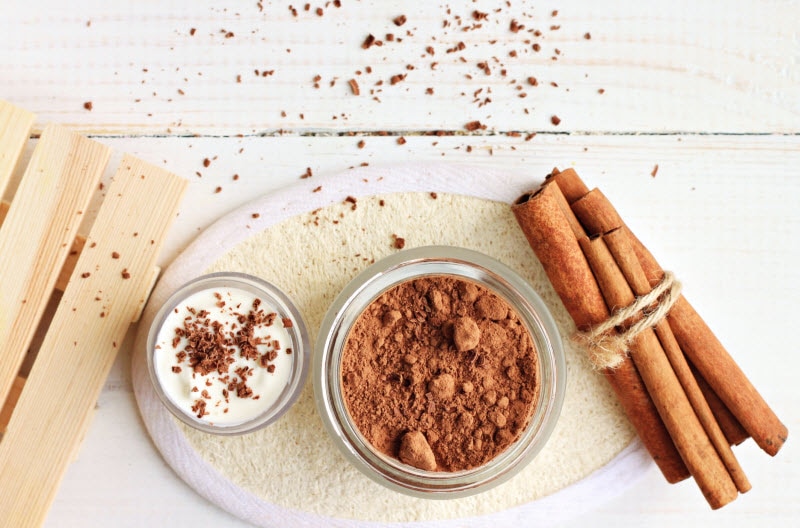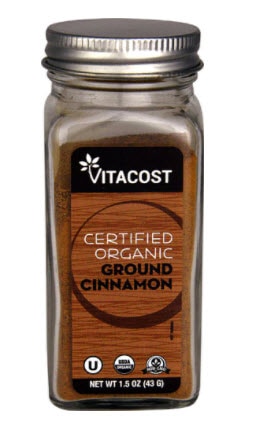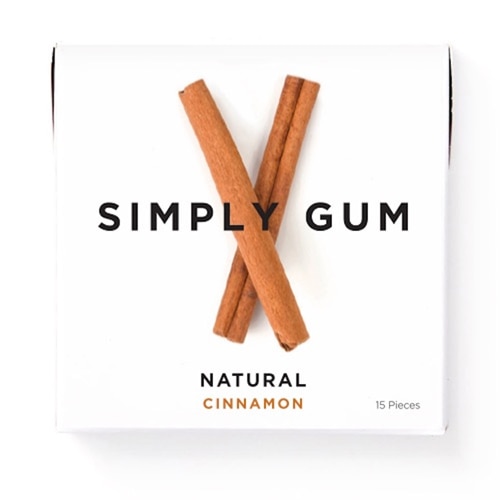As the sun sets on another summer,
fall spices are about to take center stage. From pumpkin spice lattes to gingerbread, the right flavor brings out the joy of the season.
Cinnamon is another autumn staple – and new research suggests that this spice can help support healthy blood sugar levels.
†

Health benefits of cinnamon
Participants who took a 500-milligram cinnamon capsule three times daily for 12 weeks had lower abnormal fasting glucose levels than those who took a placebo, according to
a study published in the Journal of the Endocrine Society.
†
In addition, eating cinnamon appeared to help the body’s ability to keep blood sugar levels stable when study participants consumed a carbohydrate-rich meal.
†
Researchers say such beneficial effects might help people with prediabetes reduce the risk of developing full-blown type-2 diabetes.
†
The study’s small sample size – 51 people with prediabetes – means no one should jump to conclusions about the role of cinnamon in preventing diabetes, says Lauren Harris-Pincus, a registered dietitian nutritionist, founder of NutritionStarringYOU.com and author of "
The Protein-Packed Breakfast Club."
However, Harris-Pincus – who was not associated with the study -- adds that other research has found links between eating cinnamon and improved health.
“Typically, cinnamon is thought to have antioxidant and
anti-inflammatory benefits similar to a lot of other spices,” she says.
Adding cinnamon, reducing sugar
Cinnamon also can boost your health in another way -- by helping you reduce your intake of table sugar.
“Cinnamon does have somewhat of a sweet essence to it,” she says. “So, when you use cinnamon in a dish or sprinkle it on your food, you should need less sugar to achieve the taste acceptance level that you’re seeking.”
For example, Harris-Pincus suggests taking plain Greek yogurt or
oatmeal and adding a
sprinkle of cinnamon. “You may get away with not having to sweeten it,” she says.
As a general rule, substitute cinnamon for sugar to as great a degree as possible, Harris-Pincus says.
“See how low you can keep the added sugars, or non-nutritive sweeteners,” she says. “You want the lowest threshold possible for your taste pleasure.”
 Getting more cinnamon into your diet
Getting more cinnamon into your diet
Adding cinnamon to your diet is easy, because it pairs well with many foods, Harris-Pincus says.
“It goes well on almost anything sweet,” she says. “Like when you think of
pancakes or waffles or French toast or baked goods.”
Cinnamon also boosts the flavor of dairy products – such as cream cheese – and many fruits, such as pears, apples and berries, Harris-Pincus says.
“I’m good just literally cutting up fruit on a plate and just sprinkling it with cinnamon and picking up the pieces and eating it,” she says.
Cinnamon is also commonly found as part of autumn dishes such as
pumpkin pie spice or
apple pie spice. Harris-Pincus adds that cinnamon sometimes works well where you might not expect to find it, such as in
chili recipes.
“Cinnamon can pair well with things like
cumin or
turmeric, those sorts of spices on the savory side,” she says.
How much cinnamon is enough?
As a general rule, Harris-Pincus suggests consuming as much cinnamon as you enjoy, although a half-teaspoon to a full teaspoon daily would make sense for most people.
“That’s what I seem to see in the research,” she says. “Any more than that is probably unnecessary.”
However, she says your choice of cinnamon can make a difference. She recommends
Ceylon cinnamon over cassia cinnamon, especially if you take larger doses. That is because cassia cinnamon contains coumarin.
“Coumarin is something in cinnamon that can have negative health effects, particularly if you consume a lot of it,” Harris-Pincus says.
She says Ceylon cinnamon should be clearly labeled as such in the grocery store, and that organic cinnamon tends to be of the Ceylon variety.
Finally, Harris-Pincus reminds you that the health impact of cinnamon is likely modest, and using the spice is not an excuse for bad eating.
"I wouldn't eat cake and say, 'I'm going to chase it with some cinnamon and it's going to lower my blood sugar,'" she says.
†These statements have not been approved by the Food and Drug Administration. These products are not intended to diagnose, treat, cure or prevent disease.





